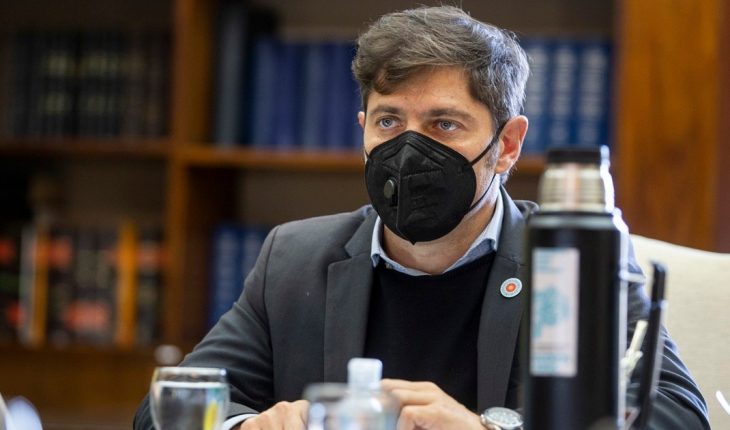The dispute over face-to-face classes is approaching a new amendment to the decree submitted by the President of the Nation. In this case, Axel Kicillof highlighted the report of the Conicet and different universities on the impact of the continuity of open classrooms on coronavirus cases.” A report on the presence in schools by prestigious Argentine researchers from conicet and different universities and disciplines has just come into my hands. I consider it a great contribution to the debate,” said the governor of the Province of Buenos Aires.” I have no doubt that if we argue on the basis of data and evidence and not from the ideological trench or for electoral purposes it will be easier to overcome the differences,” he noted in this regard the report that gathers studies between 31 March and 28 April 2021 in the most affected districts.
A report on the presence in schools by prestigious Argentine researchers from CONICET and different universities and disciplines has just come into my hands. I consider it a great contribution to the debate.
I share the link: https://t.co/3n7pp0dl36 https://t.co/oL01chMvnL — Axel Kicillof (@Kicillofok)
May 13, 2021
It was divided between the City of Buenos, the Bonaerenses parties that make up the Metropolitan Area of Buenos Aires (conurbano) and the rest of the jurisdictions of the Province of Buenos Aires where these regulations began to govern. After it was made known, the researcher of the Conicet, Rodrigo Quiroga, explained: “What we observe is a greater diminution of the number of cases in the conurbano bonaerense from a moment that perfectly coincides with the suspension of in personhood, in a context of high viral circulation; this means that in this context face-to-face schooling seems to contribute to an increase in community transmission.” On the other hand, the report details that a 22% drop in cases was observed in the conurbano between 22 and 28 April, while in the City of Buenos Aires (which continued with face-to-face classes even though it was considered as jurisdiction in epidemiological alarm) the decrease was 13%, and in the rest of the departments of the province of Buenos Aires it was 11.4%.





